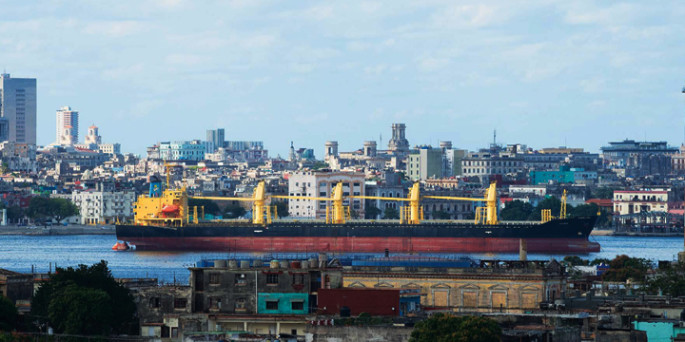
What if Cuba returns to the IMF and the World Bank?
HAVANA — “So many flies can’t be wrong,” we might say, as we try to connect the dots.
In mid-July, former Secretary of Commerce Carlos Gutiérrez said publicly that the United States should help Cuba enter the world’s main multilateral economic institutions: the World Bank (WB), the International Monetary Fund (IMF) and the Inter-American Development Bank (IDB).

“Now, with the United States having just restored diplomatic ties with the island after more than a half-century of enmity, it seems to be only a matter of time before it joins both institutions — to the benefit of all involved,” wrote Héctor R. Torres, former executive director of the IMF, referring to the IMF and the WB.
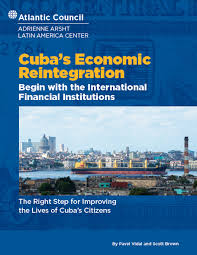 Also in July, The Atlantic Council published a report on “Cuba’s Economic Reintegration: Begin with the International Financial Institutions,” written by the Cuban academician Pavel Vidal and a former IMF official, Scott Brown.
Also in July, The Atlantic Council published a report on “Cuba’s Economic Reintegration: Begin with the International Financial Institutions,” written by the Cuban academician Pavel Vidal and a former IMF official, Scott Brown.
Another clue: In late July, the U.S. State Department removed Cuba from a “black list” — yet another list — of nations involved in human trafficking. By being upgraded to Tier 2 of the list (“Special Watch”) is no longer the object of the Law on the Protection for Victims of Trafficking and Violence (2000).
That law establishes that the President of the U.S. must instruct the U.S. executives of international financial institutions to vote against any loans for the countries classified as “accomplices” of human trafficking (Tier 3). So, at least potentially, an obstacle has been removed from Cuba’s links with those institutions.
What does Cuba gain with membership in the IMF and the WB? Torres’ answer is quite convincing.
“Cuba is rightly proud of its social achievements, but ensuring that they remain sustainable will require that its economy continues to grow. For that, Cuba will need to pursue and deepen the economic reforms that it has started, address its technological obsolescence, and upgrade its public infrastructure. All of this requires raising capital.”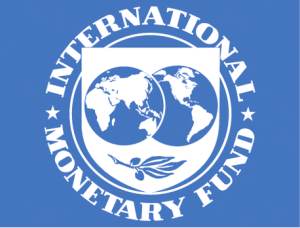
Vidal and Brown argue that the multilateral financial institutions would help to propel foreign investment and would represent “a vote of international confidence” in the Cuban economy.
In other words, they would contribute to a greater global insertion and an integration into valuable world networks. The perception of “risk country” would be reduced, and there could be a drop in the interest rates that Cuba pays for foreign financing, which would soften the balance-of-payment restrictions and favor economic growth.
Technical training and assistance, improvement in communications, access to the Internet, agriculture, tourism, standards of quality and market experience would be other potential advantages, according to the Atlantic Council report.
“The sector of banking and financial services needs to be strengthened and legitimized before foreign companies can have a serious presence in Cuba,” Vidal and Brown point out.
In their opinion, there are three ways for Cuba to become part of these institutions:
- A gradual process of confidence-building between the financial institutions and the Cuban authorities, without an initial commitment or deadline for membership.
- Cuba’s decision to apply for membership; a direct and immediate path.
- President Obama should take the initiative by making a public declaration of support for the integration of Cuba into those institutions and claiming its constitutional prerogative to define U.S. foreign policy, same as President George H. W. Bush did when he promoted the participation of Russia in the IMF in 1991-92.
The three approaches could be superimposed, although the least risky one is the first one. Needless to say, it won’t be easy.
The authors acknowledge that several U.S. laws force officials in those institutions to block acceptance of the island and deny any possibility of international financing.
For example, the United States could withdraw funds equivalent to the amount lent to Cuba. “The law of the strongest,” the authors call it.
Even so, the researchers say: “Actually, U.S. backing of Cuba’s membership in those financial institutions would be consistent with the new policy that seeks to promote economic reforms in Cuba.”
At the same time, Cuba’s decision to join up “would be consistent with Cuba’s efforts to improve its position in international markets.”
Vidal and Brown recommend that the U.S. government give the greatest freedom of action to the financial institutions so they can initiate debates in that regard, such as including the subject in bilateral discussions.
“President Obama should make a public statement to assert his authority in interpreting legislation designed to obstruct Cuba’s membership in the IFIs through the threat of withdrawal of funds. This public statement will provide the IFIs — today hesitant about incurring U.S. congressional disapproval — with political cover to engage Cuba,” the report says.
Meanwhile, the island can boast of the advances in the negotiations on its foreign debt, especially the accord with the Paris Club. Still pending: improvements in the quality and transparency of the economic statistics, the unification of the two currencies, the preparation of financial data that are comparable worldwide, etc.
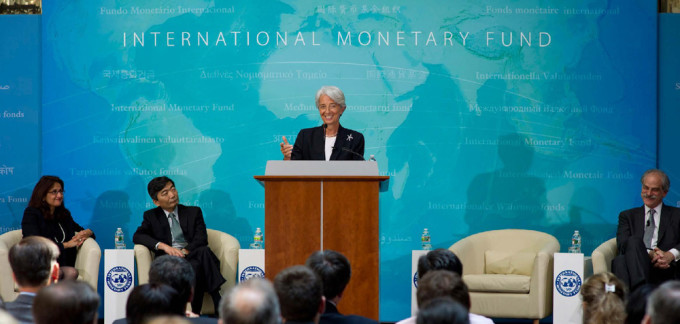
Héctor R. Torres says that Cuba’s incorporation into the Inter-American Development Bank could be politically sensitive because of the IDB’s direct connection with the Organization of American States (OAS).
“The World Bank and the IMF would also benefit from admitting Cuba, which currently is the most conspicuous exception to both institutions’ near-universal membership. […] Cuba may or may not be politically ready to join the international financial institutions, but it clearly meets the conditions needed to apply for accession to the IMF,” Torres asserts.
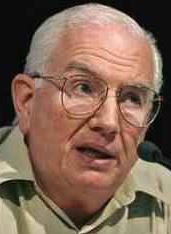
Back in November 2011, a report from the Brookings Institution done by economist Richard Feinberg encouraged the island to return to the IMF and the WB and asked the U.S. not to politicize or interfere in that process.
So as not to lose our perspective, we quote this recent statement from Cuban economist José Luis Rodríguez García, an adviser to the Center for Research of the World Economy:
“It remains to be shown that it is possible to join the IMF and sustain a development program such as the one sought by Cuba, especially if one considers the role that that organization has played in the relentless application of neoliberal recipes, as reflected even now in its position toward the government of Greece. […] About that alleged positive role, we need only examine its role in the transition to capitalism in Eastern Europe and the former Soviet Union.”
This is a very complex economic and political poker game. If everyone abides by the standards of “fair play,” it may have several winners.


